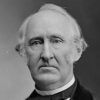Thou knowest that since the invention of gun-powder, there is no place impregnable: that is to say, Usbek, there is no longer any asylum upon earth against injustice and violence. I always tremble for fear at last some invention will be found out of a shorter way to destroy mankind, and to depopulate whole nations and whole kingdoms.
[Tu sais que, depuis l’invention de la poudre, il n’y a plus de places imprenables ; c’est-à-dire, Usbek, qu’il n’y a plus d’asile sur la terre contre l’injustice et la violence. Je tremble toujours qu’on ne parvienne à la fin à découvrir quelque secret qui fournisse une voie plus abrégée pour faire périr les hommes, détruire les peuples et les nations entières.]
Charles-Lewis de Secondat, Baron de Montesquieu (1689-1755) French political philosopher
Persian Letters [Lettres Persanes], Letter 106, Rhedi to Usbek (1721) [tr. Ozell (1760 ed.), # 105]
(Source)
(Source (French)). Alternate translations:
Thou knowest, that since the Invention of gun-powder, there is no place impregnable; that is to say, Ushek, that there is not any longer an asylum upon earth against injustice and violence. I always tremble, left they should at arrive at last, at the discovery of some secret, which may furnish them with a shorter way to destroy mankind, and to depopulate whole nations and whole kingdoms.
[tr. Floyd (1762), # 105]
You know that since the invention of gunpowder no place is impregnable; that is to say, Usbek, that there is no longer upon the earth a refuge from injustice and violence. I dread always lest they should at last discover some secret which will furnish them with a briefer method of destroying men, by killing them off wholesale in tribes and nations.
[tr. Davidson (1891)]
You know that, since the invention of gunpowder, no fortress is impregnable; that is to say, Usbek, that there is no longer upon earth an asylum against injustice and violence. I am always in terror lest some secret or other should be at length discovered that will not only kill men, but destroy entire tribes and nations.
[tr. Betts (1897)]
You know that since the invention of gunpowder there have been no impregnable places; and this is to say, Usbek, that there is no longer an asylum from injustice and violence any¬ where on the earth. I am in constant terror that ultimately someone will succeed in discovering some secret which will furnish an even more efficient way to kill men, by destroying whole peoples and entire nations.
[tr. Healy (1964)]
You know, since the invention of gunpowder, no fortification is impregnable; in other words, Usbek, there no longer exists, anywhere on earth, any asylum from injustice and violence. I live in fear that men of science will eventually discover some secret which would offer a faster day to kill people, destroy races, and wipe out entire nations.
[tr. Mauldon (2008)]
You know that since the invention of gunpowder, no place is impregnable -- and that is to say, Usbek, that there is no place on earth where we are safe from injustice and violence. I tremble at the thought that eventually someone will discover some new secret that will lead to an even more efficient way to kill even more people, perhaps to destroy entire populations and nations.
[tr. MacKenzie (2014), # 105]
Quotations about:
destruction
Note not all quotations have been tagged, so Search may find additional quotes on this topic.
SEMPRONIUS: Oh! think what anxious moments pass between
The birth of plots, and their last fatal periods,
Oh! ’tis a dreadful interval of time,
Filled up with horror all, and big with death!
Destruction hangs on every word we speak,
On every thought, till the concluding stroke
Determines all, and closes our design.Joseph Addison (1672-1719) English essayist, poet, statesman
Cato, Act 1, sc. 3, l. 50ff (1713)
(Source)
DELUGE, n. A notable first experiment in baptism which washed away the sins (and sinners) of the world.
Ambrose Bierce (1842-1914?) American writer and journalist
“Deluge,” The Cynic’s Word Book (1906)
(Source)
Included in The Devil's Dictionary (1911). Originally published in the "Devil's Dictionary" column in the San Francisco Wasp (1882-01-20).
The original Wasp entry included a second sentence: "Since then it has been deemed advisable to let the sinners remain on their good behavior."
The task of war is to destroy life; the task of peace is to create it; to organize labor so that it shall not incapacitate men for leisure; to establish justice as a foundation for personality; to unfold in men the capacity for noble joy and profound sorrow; to liberate them for the passion of love, the perception of beauty, the contemplation of truth. Of all these things war is the enemy.
G. Lowes Dickinson (1862-1932) British political scientist and philosopher [Goldsworthy "Goldie" Lowes Dickinson]
“The War and the Way Out: A Further Consideration,” sec. 3, Atlantic Monthly (1915-04)
(Source)
A war which is destroying men as they have never been destroyed before, from which at the best the nations will emerge permanently degraded in their stock, poorer in physique, duller in intelligence, weaker in will than they went in, this war is to be protracted until the whole manhood of Europe is decimated, in order — in order to what? Let us ask in detail.
In order, we are told, that the Germans may ‘feel they are beaten.’ And then? They will be good in future? They will admit they were wrong? They will lick the hand that chastised them? Who believes it? The more completely they are beaten, the more obstinately they will be set on recovery. When France was beaten to the dust in 1870, did she repent for having provoked the war? On the contrary, she gathered up her forces for revenge. And Germany will do the same.G. Lowes Dickinson (1862-1932) British political scientist and philosopher [Goldsworthy "Goldie" Lowes Dickinson]
“The War and the Way Out: A Further Consideration,” sec. 2, Atlantic Monthly (Apr 1915)
(Source)
Mark! where his carnage and his conquests cease!
He makes a solitude, and calls it — peace!George Gordon, Lord Byron (1788-1824) English poet
“The Bride of Abydos,” canto 2, st. 20 (1813)
(Source)
Adaptation from Tacitus' Agricola.
Vesuvius, once latticed with vine shade,
With grapes from which the richest wine was made —
This is where Bacchus had his favorite haunt
And Satyrs could their wildest dances vaunt.
Here Venus more than Sparta made her place.
Here Hercules brought blessings for the race.
What once in beauty and renown was cherished
In fire and ashes has with horror perished.
Were it allowed immortal gods to rue it,
They would have wished they were not doomed to do it.[Hic est pampineis viridis modo Vesbius umbris,
Presserat hic madidos nobilis uva lacus:
Haec iuga, quam Nysae colles, plus Bacchus amavit,
Hoc nuper Satyri monte dedere choros.
Haec Veneris sedes, Lacedaemone gratior illi,
Hic locus Herculeo numine clarus erat.
Cuncta iacent flammis et tristi mersa favilla:
Nec superi vellent hoc licuisse sibi.]Martial (AD c.39-c.103) Spanish Roman poet, satirist, epigrammatist [Marcus Valerius Martialis]
Epigrams [Epigrammata], Book 4, epigram 44 (4.44) (AD 89) [tr. Wills (2007)]
(Source)
On the eruption of Mt. Vesuvius in AD 79, which destroyed the towns of Pompeii (whose patron was Venus) and Herculaneum (supposedly founded by Hercules), as well as much of the surrounding countryside.
(Source (Latin)). Alternate translations:
Vesuvius shaded once with greenest vines,
Where pressed grapes did yield the noblest wines.
Which hills far more they say Bacchus lov'd,
Where Satyrs once in mirthfull dances mov'd,
Where Venus dwelt, and better lov'd the place
Than Sparta; where Alcides Temple was,
Is now burnt downe, rak'd up in ashes sad.
The gods are griev'd that such great power they had.
[tr. May (1629)]
Vesuvio, cover'd with the fruitful vine,
Here flourish'd once, and ran with floods of wine.
here Bacchus oft to the cool shades retir'd,
And his own native Nisa less admir'd:
Oft to the mountain's airy tops advanc'd,
The frisking Satyrs on the summits danc'd.
Alcides here, here Venus grac'd the shore,
Nor lov'd her fav'rite Lacedæmon more!
Now piles of ashes , spreading all around
In undistinguish'd heaps, deform the ground.
The gods themselves the ruin'd seats bemoan;
And blame the mischiefs that themselves have done.
[tr. Addison (1705)]
Vesuvius this! So lately crown'd with vines!
Whence in full currents flowed the generous wines!
By Bacchus more than Nysa's hills belov'd!
Upon whose top in dance the satyrs mov'd!
The seat of Venus, more than Sparta dear!
Proud of her name Heraclea once was here!
All drown'd in flames! with ashes cover'd o'er!
the gods, who caus'd the ill, their power deplore.
[tr. Hay (1755)]
Here Vesuvius late with rich festoons was green:
Here noblest clusters gusht a lake serene.
These beyond Nysa's hights the god advanc'd:
On this glad moutnain gamesom satyrs danc'd.
This, more than Sparta, joy'd the laughing dame:
These summits prouden'd by Alcides' name.
Smoke, embers, flames, have laid the glories low:
The pow'rs regret the very pow'r they glow.
[tr. Elphinston (1782), Book 4, part 1, ep. 33]
Yonder is Vesuvius, lately verdant with the shadowy vines; there a noble grape under pressure yielded copious lakes of wine; that hill Bacchus preferred to the hills of Nysa; there lately the Satyrs led their dances; there Venus had a residence more agreeable to her than Lacedæmon; that spot was made illustrious by the name of Hercules. Now, every thing is laid low by flames, and is buried under the sad ashes. Surely the Gods must regret that they possessed so much power for mischief.
[tr. Amos (1858), ch. 7, ep. 167]
This is Vesuvius, lately green with umbrageous vines; here the noble grape had pressed the dripping coolers. These are the heights which Bacchus loved more than the hills of Nysa; on this mountain the satyrs recently danced. This was the abode of Venus, more grateful to her than Lacedaemon; this was the place renowned by the divinity of Hercules. All now lies buried in flames and sad ashes. Even the gods would have wished not to have had the power to cause such a catastrophe.
[tr. Bohn's Classical (1859)]
This is Vesbius, green yesterday with viny shades; here had the noble grape loaded the dripping vats; these ridges Bacchus loved more than the hills of Nysa; on this mount of late the Satyrs set afoot their dances; this was the haunt of Venus, more pleasant to her than Lacedaemon; this spot was made glorious by the name of Hercules. All lies drowned in fire and melancholy ash; even the High Gods could have wished this had not been permitted them.
[tr. Ker (1919)]
Fair were thy shading vines and rich to fill
The overflowing wine-press year by year,
Bacchus hath loved thee more than Nysa’s hill,
Vesuvius, for his fauns held revel here;
Sweet Venus held no other haunt so dear,
Alcides made thee glorious with his name,
Flame-swept art thou, a waste of ashes drear,
And heaven remorseful hides its face for shame.
[tr. Pott & Wright (1921)]
Vesuvius here was green with mantling vine,
Here brimming vats o'erflowed with noble wine.
These hills to jocund Bacchus were more dear
Than Nysa, and the Satyrs reveled here.
This blest retreat could Cytherea please,
This owned the fame of godlike Hercules;
Now dismal ashes all and scorching flame.
Such dire caprice might move a god to shame.
[tr. Francis & Tatum (1924), ep. 84]
Behold Vesuvius, lately green
With vineyard-covered slopes!
Here did the noble grapevine yield
Beyond one's wildest hopes!
Here are the ridges Bacchus loves
More than those of his youth.
And here till late his Satyrs danced
There merry dance uncouth.
Here stood Pompeii, dearer far
To Aphrodite than
The Lacedaemonian island where
Her early life began.
And here stood Herculaneum,
Founded by Hercules
Where here he paused to rest the oxen
Of Geryones.
All this, by fire and flame consumed,
Lies sunk, so sad a sight
The very gods might wish they had
Not had it in their might.
[tr. Marcellino (1968)]
Only a short while ago old smoky Vesuvius
bore a green burden of vineyards on his shoulders
and the vats below were clogged with gorgeous grapes.
This was a place whose forests high in the air meant more to Bacchus than his Nysean hills.
And only a short while ago Satyrs led their troupes down this same mountainside. Here were Venus’ haunts
more appealing to her than Sparta.
And this whole landscape knew the sound of Hercules’ roving name. He too made it holy.
And now, there it lies submerged in ashes,
crumpled, shorn by the flames,
so curiously at odds
with the will of the gods
[tr. Bovie (1970)]
Hear the testament of death:
yesterday beneath Vesuvius' side
the grape ripened in green shade,
the dripping vats with their viny tide
squatted on hill turf: Bacchus
loved this land more than fertile Nysa:
here the satyrs ran, this was Venus' home,
sweeter to her than Lacedaemon
or the rocks of foam-framed Cyprus.
One city now in ashes the great name
of Hercules once blessed, one other
to the salty sea was manacled.
All is cold silver, all fused with death
murdered by the fire of Heaven. Even
the Gods repent this faculty
that power of death which may not be recalled.
[tr. Porter (1972)]
This is Vesuvius, yesterday green with shady vines.
Here notable grapes weighted down the wine-steeped vats.
These the heights that Bacchus loved more than Nysa's hills.
On this mountain the Satyrs began their dances lately.
This was Venus' seat, more pleasing to her than Sparta.
This place was made renowned by Hercules' godhead.
All lies sunk in flames and bleak ash. Even the high gods
Could wish that this had not been allowed to them.
[tr. Shepherd (1987)]
This is Vesuvius, but lately green with shade of vines. Here the noble grape loaded the vats to overflowing. These slopes were more dear to Bacchus than Nysa's hills, on this mountain not long ago Satyrs held their dances. This was Venus' dwelling, more pleasing to her than Lacedaemon, this spot the name of Hercules made famous. All lies sunk in flames and drear ashes. The High Ones themselves would rather this had not been in their power.
[tr. Shackleton Bailey (1993)]
Here is Vesuvius, viney and shade-green only yesterday;
here, on these slopes Bacchus loved more than Nysa’s hills,
the noble grapes outgave themselves time and again;
on this mountain the Satyrs leaped and danced,
for this was Venus’s adopted home, dearer to her than Sparta,
and here a proud town bore the name of Hercules.
It’s all drowned now by fire, sunk to drab ash. What won’t
the high gods permit themselves, they could well ask.
[tr. Matthews (1995)]
This is Vesuvius, green just now with vines;
here fine grapes loaded brimming vats. These heights
were loved by Bacchus more than Nysa's slopes;
on this mount, satyrs lately danced their rites.
this home of Venus pleased her more than Sparta;
this spot the name of Hercules made proud.
All lie engulfed in flames and dismal ashes:
the gods themselves regret it was allowed.
[tr. McLean (2014)]
Who knows whether, when a comet shall approach this globe to destroy it, as it often has been and will be destroyed, men will not tear rocks from their foundations by means of steam, and hurl mountains, as the giants are said to have done, against the flaming mass? — and then we shall have traditions of Titans again, and of wars with Heaven.
George Gordon, Lord Byron (1788-1824) English poet
Conversations of Lord Byron with Thomas Medwin, Vol. 2 (1832)
(Source)
The invention of gunpowder and the constant improvement of firearms are enough in themselves to show that the advance of civilization has done nothing practical to alter or deflect the impulse to destroy the enemy, which is central to the very idea of war.
[Die Erfindung des Pulvers, die immer weiter gehende Ausbildung des Feuergewehrs zeigen schon hinreichend, dase die in dem Begriff des Krieges liegende Tendenz zur Vernichtung des Gegners auch faktisch durch die zunehmende Bildung keineswegs gestört oder abgelenkt worden ist.]
Karl von Clausewitz (1780-1831) Prussian soldier, historian, military theorist
On War [Vom Kriege], Book 1, ch. 1 “What Is War? [Was ist der Krieg?],” § 3 (1.1.3) (1832) [tr. Howard & Paret (1976)]
(Source)
(Source (German)). Alternate translations:
The invention of gunpowder, the constant progress of improvements in the construction of firearms are sufficient proofs that the tendency to destroy the adversary which lies at the bottom of the conception of war, is in no way changed or modified through the progress of civilisation.
[tr. Graham (1873)]
The invention of gunpowder and the advances continually being made in the development of firearms, in themselves show clearly enough that the demand for the destruction of the enemy, inherent in the theoretical conception of war, has been in no way actually weakened or diverted by the advance of civilization
[tr. Jolles (1943)]
Better to sink beneath the shock
Than moulder piecemeal on the rock!
I am the spirit, ever, that denies!
And rightly so: since everything created,
In turn deserves to be annihilated:
Better if nothing came to be.
So all that you call Sin, you see,
Destruction, in short, what you’ve meant
By Evil is my true element.[Ich bin der Geist, der stets verneint!
Und das mit Recht; denn alles, was entsteht,
Ist wert, daß es zugrunde geht;
Drum besser wär’s, daß nichts entstünde.
So ist denn alles, was ihr Sünde,
Zerstörung, kurz, das Böse nennt,
Mein eigentliches Element.]Johann Wolfgang von Goethe (1749-1832) German poet, statesman, scientist
Faust: a Tragedy [eine Tragödie], Part 1, sc. 6 “The Study,” l. 1337ff [Mephistopheles] (1808-1829) [tr. Kline (2003)]
(Source)
Some translations (and this site) include the Declaration, Prelude on the Stage, and Prologue in Heaven as individual scenes; others do not, leading to their Part 1 scenes being numbered three lower.
(Source (German)). Alternate translations:
I am the Spirit that Denies!
And rightly so, for all that from the Void
Wins into life, deserves to be destroyed;
Thus it were better nothing life should win.
And so is all that you as Sin,
Destruction, in a word, as Evil represent,
My own peculiar element.
[tr. Latham (1790)]
I am the Spirit that denies!
And rightly too; for all that doth begin
Should rightly to destruction run;
'Twere better then that nothing were begun.
Thus everything that you call Sin,
Destruction -- in a word, as Evil represent --
That is my own, real element.
[tr. Priest (1808)]
I am the spirit who says "nay" to all,
And rightly so; for all that have existence
Deserve that they should perish; so 'twere better
That nothing earthly should enjoy existence.
All, therefore, that you mortals mean by Sin,
Destruction, in a word, what you call Evil,
Is my peculiar element.
[tr. Coleridge (1821)]
I am the spirit which constantly denies, and that rightly; for everything that has originated, deserves to be annihilated. Therefore better were it that nothing should originate. Thus, all that you call sin, destruction, in a word. Evil, is my proper element.
[tr. Hayward (1831)]
The spirit I, which evermore denies!
And justly; for whate'er to light is brought
Deserves again to be reduced to naught;
Then better 'twere that naught should be.
Thus all the elements which ye
Destruction, Sin, or briefly, Evil, name,
As my peculiar element I claim.
[tr. Swanwick (1850)]
I am the spirit that denies!
And justly so; for all that time creates,
He does well who annihilates!
Better, it ne'er had had beginning;
And so, then, all that you call sinning,
Destruction, -- all you pronounce ill-meant, --
Is my original element.
[tr. Brooks (1868)]
I am the Spirit that Denies!
And justly so: for all things, from the Void
Called forth, deserve to be destroyed:
'Twere better, then, were naught created.
Thus, all which you as Sin have rated, --
Destruction, -- aught with Evil blent, --
That is my proper element.
[tr. Taylor (1870)]
I am the Spirit of Negation:
And justly so; for all that is created
Deserves to be annihilated.
’Twere better, thus, that there were no creation.
Thus everything that you call evil,
Destruction, ruin, death, the devil,
Is my pure element and sphere.
[tr. Blackie (1880)]
I am the spirit that negates.
And rightly so, for all that comes to be
Deserves to perish wretchedly;
'Twere better nothing would begin.
Thus everything that your terms, sin,
Destruction, evil represent --
That is my proper element.
[tr. Kaufmann (1961)]
I am the spirit that denies forever!
And rightly so! What has arisen from the void
deserves to be annihilated. It would be best if
nothing ever would arise. And thus what you call
havoc, deadly sin, or briefly stated: Evil,
that is my proper element.
[tr. Salm (1962)]
The spirit which eternally denies!
And justly so; for all that which is wrought
Deserves that it should come to naught;
Hence it were best if nothing were engendered.
Which is why all things you have rendered
By terms like sin, destruction -- evil, in brief --
Are my true element-in-chief.
[tr. Arndt (1976)]
I am the spirit of perpetual negation;
And rightly so, for all things that exist
Deserve to perish, and would not be missed.
Much better it would be if nothing were
Brought into being, Thus, what you men call
Destruction, sin, evil in short, is all
My sphere, the element I most prefer.
[tr. Luke (1987)]
I am the spirit that says no, no,
Always! And how right I am! For surely
It's right that everything that comes to be
Should cease to be. And so they do. Still better
Would be nothing ever was. Hence sin
And havoc and ruin -- all you call evil, in sum --
For me's the element in which I swim.
[tr. Greenberg (1992)]
I am the spirit of perpetual negation.
And that is only right; for all
That's made is fit to be destroyed.
Far better if it were an empty void!
So -- everything that you would call
Destruction, sin, and all that's meant
By evil, is my proper element.
[tr. Williams (1999)]
But I’d sooner have the depths of earth gape open,
and almighty Father hurl me down to Hades
with his bolt, to the pallid shades and inky night,
before I disobey my conscience or its laws.[Sed mihi vel tellus optem prius ima dehiscat
Vel pater omnipotens adigat me fulmine ad umbras,
Pallentis umbras Erebo noctemque profundam,
Ante, pudor, quam te violo aut tua iura resolvo.]Virgil (70-19 BC) Roman poet [b. Publius Vergilius Maro; also Vergil]
The Aeneid [Ænē̆is], Book 4, l. 24ff (4.24-29) [Dido] (29-19 BC) [tr. Bartsch (2021)]
(Source)
Dido, regarding her loyalty to her dead husband even as she falls in love with Aeneas.
(Source (Latin)). Alternate translations:
But first earth swallow me, or mighty Jove
Shall to the shades with dreadfull thunder smite,
Pale shades of Erebus and deepest night,
Ere shame I violate thee, or wrong thy rites.
[tr. Ogilby (1649)]
But first let yawning earth a passage rend,
And let me thro' the dark abyss descend;
First let avenging Jove, with flames from high,
Drive down this body to the nether sky,
Condemn'd with ghosts in endless night to lie,
Before I break the plighted faith I gave!
[tr. Dryden (1697)]
But sooner may earth from her lowest depths yawn for me, or the almighty Sire hurl me by his thunder to the shades, the pale shades of Erebus and deep night, than I violate thee, modesty, or break they laws.
[tr. Davidson/Buckley (1854)]
But first for me may Earth unseal
The horrors of her womb,
Or Jove with awful thunderpeal
Dismiss me into gloom,
The gloom of Orcus' dim twilight,
Or deeper still, primeval night,
Ere wound I thee, my woman's fame,
Or disallow thy sacred claim.
[tr. Conington (1866)]
But I would rather that the steadfast earth
Should yawn beneath me, from its lowest depths,
Or the Omnipotent Father hurl me down
With thunder to the shades, the pallid shades
Of Erebus, and night profound, ere thee,
O sacred shame, I violate, or break
Thy laws.
[tr. Cranch (1872)]
But rather, I pray, may earth first yawn deep for me, or the Lord omnipotent hurl me with his thunderbolt into gloom, the pallid gloom and profound night of Erebus, ere I soil thee, mine honour, or unloose thy laws.
[tr. Mackail (1885)]
And yet I pray the deeps of earth beneath my feet may yawn,
I pray the Father send me down bolt-smitten to the shades,
The pallid shades of Erebus, the night that never fades,
Before, O Shame, I shame thy face, or loose what thou hast tied!
[tr. Morris (1900)]
But O! gape Earth, or may the Sire of might
Hurl me with lightning to the Shades amain,
Pale shades of Erebus and abysmal Night,
Ere, wifely modesty, thy name I stain,
Or dare thy sacred precepts to profane.
[tr. Taylor (1907), st. 4, l. 28ff]
But may the earth gape open where I tread,
and may almighty Jove with thunder-scourge
hurl me to Erebus' abysmal shade,
to pallid ghosts and midnight fathomless,
before, O Chastity! I shall offend
thy holy power, or cast thy bonds away!
[tr. Williams (1910)]
But rather, I would pray, may earth yawn for me to its depths, or may the Almighty Father hurl me with his bolt to the shades -- the pale shades and abysmal night of Erebus -- before, O Shame, I violate thee or break thy laws!
[tr. Fairclough (1916)]
But I pray, rather,
That earth engulf me, lightning strike me down
To the pale shades and everlasting night
Before I break the laws of decency.
[tr. Humphries (1951)]
But no, I would rather the earth should open and swallow me
Or the Father of heaven strike me with lightning down to the shades --
The pale shades and deep night of the Underworld -- before
I violate or deny pure widowhood's claim upon me.
[tr. Day Lewis (1952)]
But I should call upon the earth to gape
and close above me, or on the almighty
Father to take his thunderbolt, to hurl
me down to the shades, the pallid shadows
and deepest night of Erebus, before
I'd violate you, Shame, or break your laws!
[tr. Mandelbaum (1971)]
But O chaste life, before I break your laws,
I pray that Earth may open, gape for me
Down to its depth, or the omnipotent
With one stroke blast me to the shades, pale shades
Of Erebus and the deep world of night!
[tr. Fitzgerald (1981)]
But I would pray that the earth open to its depths and swallow me or that the All-powerful Father of the Gods blast me with his thunderbolt and hurl me down to the pale shades of Erebus and its bottomless night before I go against my conscience and rescind its laws.
[tr. West (1990)]
But I pray rather that earth might gape wide for me, to its depths,
or the all-powerful father hurl me with his lightning-bolt
down to the shadows, to the pale ghosts, and deepest night
of Erebus, before I violate you, Honour, or break your laws.
[tr. Kline (2002)]
But may the earth gape open and swallow me,
May the Father Almighty blast me
Down to the shades of Erebus below
And Night profound, before I violate you,
O Modesty, and break your vows.
[tr. Lombardo (2005)]
I pray that the earth gape deep enough to take me down
or the almighty Father blast me with one bolt to the shades,
the pale, glimmering shades in hell, the pit of night,
before I dishonor you, my conscience, break your laws.
[tr. Fagles (2006), l. 30ff]
Destroy the seed of evil, or it will grow up to your ruin.
Aesop (620?-560? BC) Legendary Greek storyteller
Fables [Aesopica], “The Swallow and the Other Birds” (6th C BC) [tr. Jacobs (1894)]
(Source)
When a man wantonly destroys one of the works of man we call him Vandal. When he wantonly destroys one of the works of God we call him Sportsman.
Joseph Wood Krutch (1893-1970) American educator, writer, critic, naturalist
The Great Chain of Life, ch. 9 “Reverence for Life” (1956)
(Source)
Often misquoted as "a vandal ... a sportsman."
When vision fails
Direction is lost.When direction is lost
Purpose may be forgotten.When purpose is forgotten
Emotion rules alone.When emotion rules alone,
Destruction … destruction.
He is free to make the wrong choice, but not free to succeed with it. He is free to evade reality, he is free to unfocus his mind and stumble blindly down any road he pleases, but not free to avoid the abyss he refuses to see. Knowledge, for any conscious organism, is the means of survival; to a living consciousness, every “is” implies an “ought.” Man is free to choose not to be conscious, but not free to escape the penalty of unconsciousness: destruction. Man is the only living species that has the power to act as his own destroyer — and that is the way he has acted through most of his history.
Ayn Rand (1905-1982) Russian-American writer, philosopher
“The Objectivist Ethics,” University of Wisconsin Symposium on “Ethics in Our Time” (9 Feb 1961)
(Source)
Ignorance is not bliss — it is oblivion. Determined ignorance is the hastiest kind of oblivion.
The recklessness of their ways destroyed them all.
[Αὐτῶν γὰρ σφετέρῃσιν ἀτασθαλίῃσιν ὄλοντο.]
Homer (fl. 7th-8th C. BC) Greek author
The Odyssey [Ὀδύσσεια], Book 1, l. 7ff (1.7) (c. 700 BC) [tr. Fagles (1996)]
(Source)
Original Greek. Alternate translations:
- "O men unwise, / They perish’d by their own impieties!" [tr. Chapman (1616)]
- "They lost themselves by their own insolence." [tr. Hobbes (1675), l. 9]
- "They perish’d self-destroy’d / By their own fault." [tr. Cowper (1792)]
- "For they were slain in their own foolishness." [tr. Worsley (1861), st. 2]
- "Destin'd as they were / In their mad arrogance to perish; fools!" [tr. Musgrave (1869)]
- "For they in their own wilful folly perished." [tr. Bigge-Wither (1869)]
- "For through the blindness of their own hearts they perished." [tr. Butcher/Lang (1879)]
- "They died of their own souls' folly." [tr. Morris (1887)]
- "For through their own perversity they perished." [tr. Palmer (1891)]
- "For they perished through their own sheer folly." [tr. Butler (1898)]
- "For they perished through their own deeds of sheer recklessness." [tr. Butler (1898), rev. Kim/McCray/Nagy/Power (2018)]
- "For through their own blind folly they perished." [tr. Murray (1919)]
- "For their own recklessness destroyed them all." [tr. Fitzgerald (1961)]
- "They were destroyed by their own wild recklessness, / fools." [tr. Lattimore (1965)]
- "Fools, they foiled themselves." [tr. Mendelbaum (1990)]
- "By their own mad recklessness they were brought to destruction, childish fools." [tr. Merrill (2002)]
- "It was their own transgression that brought them to their doom." [tr. DCH Rieu (2002)]
- "It was through their own blind recklessness that they perished, / the fools." [tr. Green (2018)]
- "They all died from their own stupidity, the fools." [tr. Johnston (2019)]
The corruption of the best things gives rise to the worst.
David Hume (1711-1776) Scottish philosopher, economist, historian, empiricist
The Natural History of Religion, ch. 10 “With Regard to Courage or Abasement” (1757)
(Source)
Hume actually calls this "the vulgar observation," an English translation of the well-known Latin phrase corruptio optimi pessima.
No,
it’s no disgrace for a man, even a wise man,
to learn many things and not to be too rigid.
You’ve seen trees by a raging winter torrent,
how many sway with the flood and salvage every twig,
but not the stubborn — they’re ripped out, roots and all.[ἀλλ᾽ ἄνδρα, κεἴ τις ᾖ σοφός, τὸ μανθάνειν
πόλλ᾽, αἰσχρὸν οὐδὲν καὶ τὸ μὴ τείνειν ἄγαν.
ὁρᾷς παρὰ ῥείθροισι χειμάρροις ὅσα
δένδρων ὑπείκει, κλῶνας ὡς ἐκσῴζεται,
τὰ δ᾽ ἀντιτείνοντ᾽ αὐτόπρεμν᾽ ἀπόλλυται.]Sophocles (496-406 BC) Greek tragic playwright
Antigone, l. 710ff [Haemon] (441 BC) [tr. Fagles (1982), l. 794ff]
(Source)
Ancient Greek. Alternate translations:
But that a man, how wise soe'er, should learn
In many things and slack his stubborn will,
This is no derogation. When the streams
Are swollen by mountain-torrents, thou hast seen
That all the trees wich bend them to the flood
Preserve their branches from the angry current,
While those which stem it perish root and branch.
[tr. Donaldson (1848)]
The wisest man will let himself be swayed
By others' wisdom and relax in time.
See how the trees beside a stream in flood
Save, if they yield to force, each spray unharmed,
But by resisting perish root and branch.
[tr. Campbell (1873)]
'Tis no disgrace even to the wise to learn
And lend an ear to reason. You may see
The plant that yields where torrent waters flow
Saves every little twig, when the stout tree
Is torn away and dies.
[tr. Storr (1859)]
No, even when a man is wise, it brings him no shame to learn many things, and not to be too rigid. You see how the trees that stand beside the torrential streams created by a winter storm yield to it and save their branches, while the stiff and rigid perish root and all?
[tr. Jebb (1891)]
True wisdom will be ever glad to learn,
And not too fond of power. Observe the trees,
That bend to wintry torrents, how their boughs
Unhurt remain; while those that brave the storm,
Uprooted torn, shall wither and decay.
[tr. Werner (1892)]
No, though a man be wise, 'tis no shame for him to learn many things, and to bend in season. Seest thou, beside the wintry torrent's course, how the trees that yield to it save every twig, while the stiff-necked perish root and branch?
[tr. Jebb (1917)]
It is not reason never to yield to reason!
In flood time you can see how some trees bend,
And because they bend, even their twigs are safe,
While stubborn trees are torn up, roots and all
[tr. Fitts/Fitzgerald (1939), l. 570ff]
It is no weakness for the wisest man
To learn when he is wrong, know when to yield.
So, on the margin of a flooded river
Trees bending to the torrent live unbroken,
While those that strain against it are snapped off.
[tr. Watling (1947), l. 608ff]
A man, though wise, should never be ashamed
of learning more, and must unbend his mind.
Have you not seen the trees beside the torrent,
the ones that bend them saving every leaf,
while the resistant perish root and branch?
[tr. Wyckoff (1954)]
There's no disgrace, even if one is wise,
In learning more, and knowing when to yield.
See how the trees that grow beside a torrent
Preserve their branches, if they bend; the others,
Those that resist, are torn out, root and branch.
[tr. Kitto (1962)]
But a wise man can learn a lot and never be ashamed;
He knows he does not have to be rigid and close-hauled.
You've seen trees tossed by a torrent in a flash flood:
If they bend, they're saved, and every twig survives,
But if they stiffen up, they're washed out from the roots.
[tr. Woodruff (2001)]
But for a man, even if he is wise, to go on learning
many things and not to be drawn too taut is no shame.
You see how along streams swollen from winter floods
some trees yield and save their twigs,
but others resist and perish, root and branch.
[tr. Tyrell/Bennett (2002)]
On the contrary, it is no shame for even a wise man to continue learning. Nor should a man be obstinate. One can see the trees on the heavy river-banks. Those that bend with the rushing current, survive, whereas those bent against it are torn, roots and all.
[tr. Theodoridis (2004)]
For any man,
even if he’s wise, there’s nothing shameful
in learning many things, staying flexible.
You notice how in winter floods the trees
which bend before the storm preserve their twigs.
The ones who stand against it are destroyed,
root and branch.
[tr. Johnston (2005), l. 804ff]
No, it's no disgrace for a man, even a wise man, to learn many things and not to be too rigid. You see how, in the winter storms, the trees yield that save even their twigs, but those who oppose it are destroyed root and branch.
[tr. Thomas (2005)]
I’ll have no dealings
With law-breakers, critics of the government:
Whoever is chosen to govern should be obeyed ––
Must be obeyed, in all things, great and small,
Just and unjust! O Haimon,
The man who knows how to obey, and that man only,
Knows how to give commands when the time comes.
You can depend on him, no matter how fast
The spears come: he’s a good soldier, he’ll stick it out.
Anarchy, anarchy! Show me a greater evil!
This is why cities tumble and the great houses rain down,
This is what scatters armies!
No, no: good lives are made so by discipline.
We keep the laws then, and the lawmakers.Sophocles (496-406 BC) Greek tragic playwright
Antigone, l. 665ff [Creon] (441 BC) [tr. Fitts/Fitzgerald (1939), l. 525ff]
(Source)
Alt. trans.:
But whoso wantonly
Or strains the laws or sets about dictating
To those who rule, it is not possible
That such a one should ever earn my praise.
No! when a city constitutes a chief,
It well befitteth all men to obey
His great or small, just or unjust behests.
And I should confidently trust that he,
Whose law is such, would from fixed habitude
Both wisely rule and loyally obey.
he too, when posted in the battled line,
Amid the storm of fight, would keep his ground,
Brave and unswerving by his comrade's side.
There is no greater ill than disobedience.
'Tis this which ruins cities: this it is
Which works the downfall of a noble house.
And when, in battle, spear is locked with spear,
'Tis this again which breaks and routes the phalanx.
But when men keep the line, their discipline
For the most part ensures their safety. Thus,
It is our duty still to aid the laws.
[tr. Donaldson (1848)]
But he who overbears the laws, or thinks
To overrule his rulers, such as one
I never will allow. Whome'er the State
Appoints must be obeyed in everything,
But small and great, just and unjust alike.
I warrant such a one in either case
Would shine, as King or subject; such a man
Would in the storm of battle stand his ground,
A comrade leal and true; but Anarchy --
What evils are not wrought by Anarchy!
She ruins States, and overthrows the home,
She dissipates and routs the embattled host;
While discipline preserves the ordered ranks.
Therefore we must maintain authority.
[tr. Campbell (1873)]
But he that wantonly defies the law,
Or thinks to dictate to authority,
Shall have no praise from me. What power soe'er
The city hath ordained, must be obeyed
In little things and great things, right or wrong.
The man who so obeys, I have good hope
Will govern and be governed as he ought,
And in the storm of battle at my side
Will stand a faithful and a trusty comrade.
But what more fatal than the lapse of rule?
This ruins cities, this lays houses waste,
This joins with the assault of war to break
Full numbered armies into hopeless rout;
And in the unbroken host 'tis nought but rule
That keeps those many bodies from defeat,
I must be zealous to defend the law.
[tr. Storr (1859)]
But if anyone oversteps and does violence to the laws, or thinks to dictate to those in power, such a one will never win praise from me. No, whomever the city may appoint, that man must be obeyed in matters small and great and in matters just and unjust. And I would feel confident that such a man would be a fine ruler no less than a good and willing subject, and that beneath a hail of spears he would stand his ground where posted, a loyal and brave comrade in the battle line. But there is no evil worse than disobedience. This destroys cities; this overturns homes; this breaks the ranks of allied spears into headlong rout. But the lives of men who prosper upright, of these obedience has saved the greatest part. Therefore we must defend those who respect order.
[tr. Jebb (1891)]
But if any one transgresses, and does violence to the laws, or thinks to dictate to his rulers, such an on can win no praise from me. No, whomsoever the city may appoint, that man must be obeyed, in little things and great, in just things and unjust; and I should feel sure that one who thus obey would be a good ruler no less than a good subject, and in the storm of spears would stand his ground where he was set, loyal and dauntless at his comrade's side. But disobedience is the worst of evils. This it is that ruins cities; this makes homes desolate; by this, the ranks of allies are broken into headlong rout; but, of the lives whose course is fair, the greater part owes safety to obedience. Therefore we must support the cause of order.
[tr. Jebb (1917), l. 661ff]
To transgress
Or twist the law to one’s own pleasure, presume
To order where one should obey, is sinful,
And I will have none of it.
He whom the State appoints must be obeyed
To the smallest matter, be it right -- or wrong.
And he that rules his household, without a doubt,
Will make the wisest king, or, for that matter,
The staunchest subject. He will be the man
You can depend on in the storm of war,
The faithfullest comrade in the day of battle.
There is no more deadly peril than disobedience;
States are devoured by it, homes laid in ruins,
Armies defeated, victory turned to rout.
While simple obedience saves the lives of hundreds
Of honest folk. Therefore, I hold to the law,
And will never betray it.
[tr. Watling (1947), l. 559ff]
But whoever steps out of line, violates the laws
or presumes to hand out orders to his superiors,
he'll win no praise from me. But that man
the city places in authority, his orders
must be obeyed, large and small,
right and wrong. Anarchy --
show me a greater crime in all the earth!
She, she destroys cities, rips up houses,
breaks the ranks of spearmen into headlong rout.
But the ones who last it out, the great mass of them
owe their lives to discipline. Therefore
we must defend the men who live by law.
[tr. Fagles (1982), l. 741ff]
So, if someone goes too far and breaks the law,
Or tries to tell his masters what to do,
He will have nothing but contempt from me.
But when a city takes a leader, you must obey,
Whether his commands are trivial, or right, or wrong.
But reject one man ruling another, and that's the worst.
Anarchy tears up a city, divides a home,
Defeats an alliance of spears.
But when people stay in line and obey,
Their lives and everything else are safe.
For this reason, order must be maintained.
[tr. Woodruff (2001), l. 662ff]
He who violates the laws of the gods and his city, or wants to command its leaders, will never gain my respect. We must obey those whom the city has ordained to be its leaders. We should obey them, unquestioningly, in all things, minor or great, those we agree with and those we oppose. I believe such a man would govern well and he’d also be an obedient servant; and he’d stay at his post even in the hurricane of war, honourably, bravely defending his country. There’s no worse evil than anarchy. Anarchy destroys nations, my son. Anarchy destroys homes. Anarchy turns the spears of allies into fleeing cowards. Those men left standing, the survivors, have been saved by discipline. That’s why each man must protect, with all his might, law and order.
[tr. Theodoridis (2004)]
But anyone who’s proud
and violates our laws or thinks he’ll tell
our leaders what to do, a man like that
wins no praise from me. No. We must obey
whatever man the city puts in charge,
no matter what the issue -- great or small,
just or unjust. For there’s no greater evil
than a lack of leadership. That destroys
whole cities, turns households into ruins,
and in war makes soldiers break and run away.
When men succeed, what keeps their lives secure
in almost every case is their obedience.
That’s why they must support those in control.
[tr. Johnston (2005), l. 757ff ]
He used to say that states fail when they cannot distinguish fools from serious men.
[τότ’ ἔφη τὰς πόλεις ἀπόλλυσθαι, ὅταν μὴ δύνωνται τοὺς φαύλους ἀπὸ τῶν σπουδαίων διακρίνειν.]
Antisthenes (c. 445 - c. 365 BC) Greek Cynic philosopher
Fragment 103, in Diogenes Laertius, Lives of Eminent Philosophers, Book 6, sec. 11 [tr. @sentantiq]
(Source)
It was said that God, in order to test mankind which had become swelled with pride as in the time of Noah, had commanded the wise men of that age, among them the Blessed Leibowitz, to devise great engines of war such as had never before been upon the Earth, weapons of such might that they contained the very fires of Hell, and that God had suffered these magi to place the weapons in the hands of princes, and to say to each prince: “Only because the enemies have such a thing have we devised this for thee, in order that they may know that thou hast it also, and fear to strike. See to it, m’Lord, that thou fearest them as much as they shall now fear thee, that none may unleash this dread thing which we have wrought.” But the princes, putting the words of their wise men to naught, thought each to himself: If I but strike quickly enough, and in secret, I shall destroy these others in their sleep, and there will be none to fight back; the earth shall be mine.
Such was the folly of princes, and there followed the Flame Deluge.
The power to tax involves the power to destroy.
John Marshall (1755-1835) American lawyer, politician, Supreme Court Chief Justice (1801-1835)
McCulloch v. Maryland, 17 U.S. 316 (1819)
(Source)
General, your tank
is a powerful vehicle
it smashes down forests
and crushes a hundred men.
but it has one defect:
it needs a driver.
To ravage, to slaughter, to usurp under false titles, they call empire; and where they make a desert, they call it peace.
[Auferre, trucidare, rapere, falsis nominibus imperium; atque, ubi solitudinem faciunt, pacem appellant.]
Tacitus (c.56-c.120) Roman historian, orator, politician [Publius or Gaius Cornelius Tacitus]
Agricola, ch. 30 (AD 98) [tr. Oxford Revised]
(Source)
Speech about Rome by the Caledonian chieftain Calgacus to his assembled warriors. See Byron.
- "They plunder, they slaughter, and they steal: this they falsely name Empire, and where they make a wasteland, they call it peace." [Loeb Classical Library edition]
- "To plunder, butcher, steal, these things they misname empire: they make a desolation and they call it peace." [tr. William Peterson]
- "They rob, kill and plunder all under the deceiving name of Roman Rule. They make a desert and call it peace."
The Day of the Lord will come like a thief, and then with a roar the sky will vanish, the elements will catch fire and fall apart, the earth and all that it contains will be burnt up. Since everything is coming to an end like this, you should be living holy and saintly lives while you wait and long for the Day of God to come, when the sky will dissolve in flames and the elements melt in the heat.
The Bible (The New Testament) (AD 1st - 2nd C) Christian sacred scripture
2 Peter 3:10-12 [JB (1966)]
(Source)
Alternate translations:
But the day of the Lord will come as a thief in the night; in the which the heavens shall pass away with a great noise, and the elements shall melt with fervent heat, the earth also and the works that are therein shall be burned up. Seeing then that all these things shall be dissolved, what manner of persons ought ye to be in all holy conversation and godliness, looking for and hasting unto the coming of the day of God, wherein the heavens being on fire shall be dissolved, and the elements shall melt with fervent heat?
[KJV (1611)]
But the Day of the Lord will come like a thief. On that Day the heavens will disappear with a shrill noise, the heavenly bodies will burn up and be destroyed, and the earth with everything in it will vanish. Since all these things will be destroyed in this way, what kind of people should you be? Your lives should be holy and dedicated to God, as you wait for the Day of God and do your best to make it come soon -- the Day when the heavens will burn up and be destroyed, and the heavenly bodies will be melted by the heat.
[GNT (1976)]
But the day of the Lord will come like a thief, and then the heavens will pass away with a loud noise, and the elements will be destroyed with fire, and the earth and everything that is done on it will be disclosed. Since all these things are to be destroyed in this way, what sort of persons ought you to be in leading lives of holiness and godliness, waiting for and hastening the coming of the day of God, because of which the heavens will be set ablaze and destroyed and the elements will melt with fire?
[NRSV (1989 ed.)]
But the day of the Lord will come like a thief. The heavens will disappear with a roar; the elements will be destroyed by fire, and the earth and everything done in it will be laid bare. Since everything will be destroyed in this way, what kind of people ought you to be? You ought to live holy and godly lives as you look forward to the day of God and speed its coming. That day will bring about the destruction of the heavens by fire, and the elements will melt in the heat.
[NIV (2011 ed.)]
If Afflictions refine some, they consume others.
Thomas Fuller (1654-1734) English physician, preacher, aphorist, writer
Gnomologia: Adages and Proverbs, #2666 (1732)
(Source)
Are we like the God of the Old Testament that we can decide, in Washington, D.C., what cities, what towns, what hamlets in Vietnam are going to be destroyed? … Do we have to accept that? … I do not think we have to. I think we can do something about it.
He that scattereth Thorns must not go Barefoot.
Thomas Fuller (1654-1734) English physician, preacher, aphorist, writer
Gnomologia: Adages and Proverbs, #2289 (1732)
(Source)
Darkness cannot drive out darkness; only light can do that. Hate cannot drive out hate; only love can do that. Hate multiplies hate, violence multiplies violence, and toughness multiplies toughness in a descending spiral of destruction […] The chain reaction of evil — hate begetting hate, wars producing more wars — must be broken, or we shall be plunged into the dark abyss of annihilation.
Me, I think government is a tool, like a hammer. You can use a hammer to build with or you can use a hammer to destroy with. Whether government is good or bad depends on what you use it for and how well you use it. On the whole, it’s a poor idea to put people in charge of government who don’t believe in using it.
Molly Ivins (1944-2007) American writer, political columnist [Mary Tyler Ivins]
“Good morning, Fort Worth! Glad to be here,” Fort Worth Star-Telegram (1992-03-01)
(Source)
Responding to Ronald Reagan's famous quip, "Government is not the solution; government is the problem." Collected in Nothin' But Good Times Ahead (1993).
Ivins reworked this in the introduction to her book You Got to Dance with Them What Brung You, (1998):
Personally, I think government is a tool, like a hammer. You can use a hammer to build or you can use a hammer to destroy; there is nothing intrinsically good or evil about the hammer itself. It is the purposes to which it is put and the skill with which it is used that determine whether the hammer's work is good or bad.
Those whom the gods wish to destroy, they first make famous.
Joyce Carol Oates (b. 1938) American author
“Down the Road,” New Yorker (27 Mar 1985)
See Euripides.
Curse him, root and branch! Many of those trees were my friends, creatures I had known from nut and acorn; many had voices of their own that are lost for ever now. And there are wastes of stump and bramble where once there were singing groves. I have been idle. I have let things slip. It must stop!
J.R.R. Tolkien (1892-1973) English writer, fabulist, philologist, academic [John Ronald Reuel Tolkien]
The Lord of the Rings, Vol. 2: The Two Towers, Book 3, ch. 4 “Treebeard” [Treebeard] (1954)
(Source)
Goethe says that, if you plant an oak in a flower-vase, either the oak must wither or the vase crack; some men go for saving the vase. Too many nowadays have that anxiety; the Puritans would have let it crack. So say I. If there is anything that cannot bear free thought, let it crack.
Wendell Phillips (1811-1884) American abolitionist, orator, social activist
Speech, Pilgrim Society, Plymouth (21 Dec 1855)
(Source)
Sacred cows make the tastiest hamburger.
Abbie Hoffman (1936-1989) American political activist
Quoted in “Mourning, and Celebrating, a Radical,” New York Times (20 Apr 1989)
(Source)
Most likely from "Sacred cows make great hamburgers," an anonymous saying recorded in Reisner and Wechsler, Encyclopedia of Graffiti (1974).
When you have prayed for victory you have prayed for many unmentioned results which follow victory — must follow it, cannot help but follow it. Upon the listening spirit of God the Father fell also the unspoken part of the prayer. He commandeth me to put it into words. Listen!
“O Lord our Father, our young patriots, idols of our hearts, go forth to battle — be Thou near them! With them — in spirit — we also go forth from the sweet peace of our beloved firesides to smite the foe. O Lord our God, help us to tear their soldiers to bloody shreds with our shells; help us to cover their smiling fields with the pale forms of their patriot dead; help us to drown the thunder of the guns with the shrieks of their wounded, writhing in pain; help us to lay waste their humble homes with a hurricane of fire; help us to wring the hearts of their unoffending widows with unavailing grief; help us to turn them out roofless with their little children to wander unfriended the wastes of their desolated land in rags and hunger and thirst, sports of the sun flames of summer and the icy winds of winter, broken in spirit, worn with travail, imploring Thee for the refuge of the grave and denied it — for our sakes who adore Thee, Lord, blast their hopes, blight their lives, protract their bitter pilgrimage, make heavy their steps, water their way with their tears, stain the white snow with the blood of their wounded feet! We ask it, in the spirit of love, of Him Who is the Source of Love, and Who is the ever-faithful refuge and friend of all that are sore beset and seek His aid with humble and contrite hearts. Amen.”
Pride goeth before destruction, and an haughty spirit before a fall.
The Bible (The Old Testament) (14th - 2nd C BC) Judeo-Christian sacred scripture [Tanakh, Hebrew Bible], incl. the Apocrypha (Deuterocanonicals)
Proverbs 16:18 [KJV (1611)]
(Source)
Source of the common elided version, "Pride goeth before a fall."
Alternate translations:
Pride goes before destruction, a haughty spirit before a fall.
[JB (1966), NJB (1985)]
Pride leads to destruction, and arrogance to downfall.
[GNT (1976)]
Pride comes before disaster,
and arrogance before a fall.
[CEB (2011)]
Pride goes before destruction
and a haughty spirit before a fall.
[NRSV (2021 ed.)]
Pride goes before ruin,
Arrogance, before failure.
[RJPS (2023 ed.)]
In a theatre it happened that a fire started off stage. The clown came out to tell the audience. They thought it was a joke and applauded. He told them again, and they became still more hilarious. This is the way, I suppose, that the world will be destroyed — amid the universal hilarity of wits and wags who think it is all a joke.
Søren Kierkegaard (1813-1855) Danish philosopher, theologian
Either/Or, “Diapsalmata” (1843)
Alternate translation: "It happened that a fire broke out backstage in a theater. The clown came out to inform the public. They thought it was a jest and applauded. He repeated his warning. They shouted even louder. So I think the world will come to an end amid the general applause from all the wits who believe that it is a joke."
Alternate translation: "A fire broke out backstage in a theatre. The clown came out to warn the public; they thought it was a joke and applauded. He repeated it; the acclaim was even greater. I think that's just how the world will come to an end: to the general applause of wits who believe it's a joke"




































